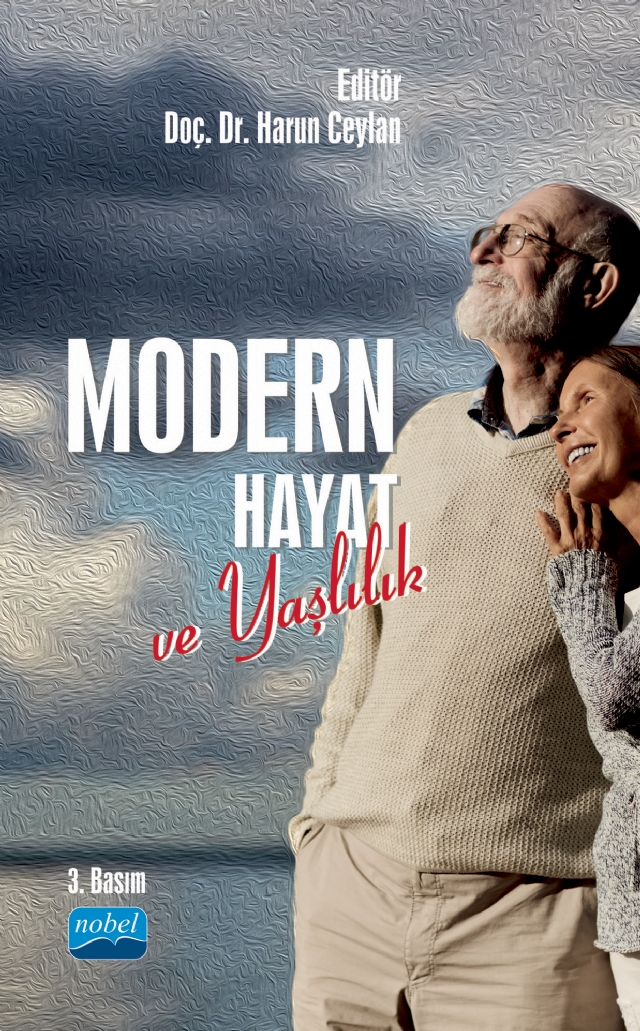Elderly care \ 1-1

A psychological guide to living with Alzheimer's, this book aims to help caregivers of patients with Alzheimer's and other types of dementia.
Unlike other books written on the subject, it looks at the subject from the family side. To the patient's family members as well as the patient; It draws attention to spouses, children, grandchildren and changes in their lives. While revealing the difficulties of living with an Alzheimer's patient, it also offers practical solutions for the difficulties encountered.
Written by an experienced psychologist who has specialized in this field and conducted clinical studies for a long time, this book meets the important needs of families with both theoretical knowledge and practical applications.
This book, where you will find a lot of useful information from what kind of a disease it is and how it progresses, from what awaits the family in this process to how to solve common problems, from what activities to do to protect cognitive abilities and how children will be affected by this process, this book offers an answer to an increasingly important need in the field.
Unlike other books written on the subject, it looks at the subject from the family side. To the patient's family members as well as the patient; It draws attention to spouses, children, grandchildren and changes in their lives. While revealing the difficulties of living with an Alzheimer's patient, it also offers practical solutions for the difficulties encountered.
Written by an experienced psychologist who has specialized in this field and conducted clinical studies for a long time, this book meets the important needs of families with both theoretical knowledge and practical applications.
This book, where you will find a lot of useful information from what kind of a disease it is and how it progresses, from what awaits the family in this process to how to solve common problems, from what activities to do to protect cognitive abilities and how children will be affected by this process, this book offers an answer to an increasingly important need in the field.

Physiotherapy and rehabilitation is a very comprehensive discipline. Physiotherapists serve in different patient groups as well as healthy children and adults. Rehabilitation is a personalized treatment plan built on a comprehensive assessment and evaluation. Choosing the right assessment and treatment methods and creating a program specific to the individual requires mastery of basic sciences such as anatomy, physiology, kinesiology, pathology and the blending of this information with rehabilitation practices. In this book, applications in different physiotherapy and rehabilitation disciplines are presented to health professionals in a comprehensive language. With the hope that it will be useful to science and its readers...
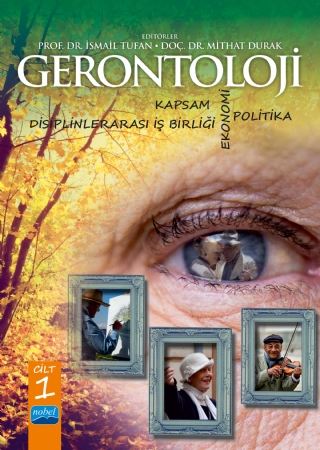
We would not have known the world by recognizing the faces of old age, which has been known for half a century, but considering that every person born under the sun is a world in itself, then knowing how and why we age and what kind of old age awaits us is the same as opening the door to a brand new world.
As we age, we change, and as we change, we change the world together. “Old” is the label. It is not our age that makes us old. Neither aging nor man has a single face. Every person goes from face to face throughout the day. He puts on and takes off his masks. Aging comes to us today with different faces. As we get to know them, we also recognize our aging and old age. Knowing about aging and old age means knowing the person and the age, especially in the age when the life expectancy sees 100 years and hopes that it will go beyond.
Old age doesn't have to be a sad end. As important as believing in destiny is believing that we can change it; that's the real issue. Getting old is our destiny, but changing old age is in our hands. Those who can predict their destiny can change their destiny. Seeing is possible with light. Knowledge is a powerful light. The mighty light of life in youth dazzles the eyes. In old age, however, life becomes more visible as the power of the light of life decreases. Our duty today is to improve the lives of those who can see life, to prepare the conditions for them to see a life full of peace, happiness and meaning.
The book in your hand, which is an encyclopedia, is the result of three years of hard work day and night. We think that you will read the chapters in this two-volume book with great enthusiasm and pleasure, in which the world-renowned and well-known experts in the field of gerontology convey their unique knowledge and experience as the authors of the chapters. In this book, which is prepared in two volumes, the subjects of Gerontology are discussed in a wide range from demography to psychology, from anthropology to sociology, from economics to life and environmental sciences, from education to technology, from politics to social welfare, from biology to psychiatry, from long-term care to preventive health, from nutrition to disability, from family structures to violence against the elderly.
As we age, we change, and as we change, we change the world together. “Old” is the label. It is not our age that makes us old. Neither aging nor man has a single face. Every person goes from face to face throughout the day. He puts on and takes off his masks. Aging comes to us today with different faces. As we get to know them, we also recognize our aging and old age. Knowing about aging and old age means knowing the person and the age, especially in the age when the life expectancy sees 100 years and hopes that it will go beyond.
Old age doesn't have to be a sad end. As important as believing in destiny is believing that we can change it; that's the real issue. Getting old is our destiny, but changing old age is in our hands. Those who can predict their destiny can change their destiny. Seeing is possible with light. Knowledge is a powerful light. The mighty light of life in youth dazzles the eyes. In old age, however, life becomes more visible as the power of the light of life decreases. Our duty today is to improve the lives of those who can see life, to prepare the conditions for them to see a life full of peace, happiness and meaning.
The book in your hand, which is an encyclopedia, is the result of three years of hard work day and night. We think that you will read the chapters in this two-volume book with great enthusiasm and pleasure, in which the world-renowned and well-known experts in the field of gerontology convey their unique knowledge and experience as the authors of the chapters. In this book, which is prepared in two volumes, the subjects of Gerontology are discussed in a wide range from demography to psychology, from anthropology to sociology, from economics to life and environmental sciences, from education to technology, from politics to social welfare, from biology to psychiatry, from long-term care to preventive health, from nutrition to disability, from family structures to violence against the elderly.
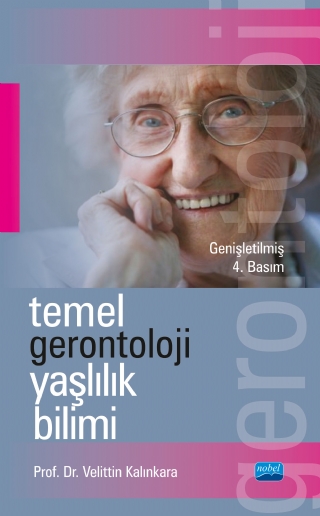
Our elderly world has also started to age demographically. Although the phenomenon of aging is mostly accepted as a problem of developed countries, it is now an issue that should be emphasized as much as developed countries. Since the beginning of the twentieth century, there has been a significant increase in the number and proportion of the elderly as a result of the improvement of health conditions, decrease in fertility and increase in quality of life with the effect of industrialization. This increase; It has caused rapid and important changes in family and community life, changed social institutions, behavior and values, and affected the status and functions of the elderly. In this process, while the family structure and social structure changed, the readiness of the family and the institutions did not change in the same direction. While the improvement of living conditions ensures longevity, the economic, social and health-related problems of longevity are generally ignored.
This book will be useful for individuals to equip themselves with basic information about aging and to develop an attitude towards solving problems. It is a source book especially for academicians working in health and social fields, students studying in the field and those who are interested in the subject.
This book will be useful for individuals to equip themselves with basic information about aging and to develop an attitude towards solving problems. It is a source book especially for academicians working in health and social fields, students studying in the field and those who are interested in the subject.
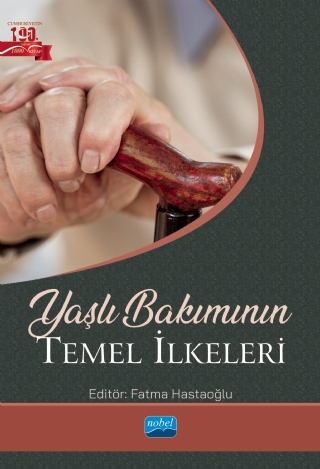
Old age is a developmental process in which important changes are experienced in terms of biopsychosocial. Although the World Health Organization (WHO) considers those over the age of 65 to be elderly, all individuals in old age do not constitute a homogeneous group. In other words, each elderly person may have different needs or occupations. In this sense, elderly care is a special concept that requires a holistic approach. With the increasing elderly population, elderly care has become a very important concept.
The increase in the proportion of the elderly in the total population means that the number of elderly individuals in need of professional care also increases. In this context, the need for personnel who will serve as intermediate staff has increased as well as physicians / nurses who can provide professional treatment and care for the elderly.
In addition to the definitions of the elderly and old age, this book contains the basic concepts in elderly care and is a source book on the care of the elderly. Hoping to be a guide in the care of the elderly…
The increase in the proportion of the elderly in the total population means that the number of elderly individuals in need of professional care also increases. In this context, the need for personnel who will serve as intermediate staff has increased as well as physicians / nurses who can provide professional treatment and care for the elderly.
In addition to the definitions of the elderly and old age, this book contains the basic concepts in elderly care and is a source book on the care of the elderly. Hoping to be a guide in the care of the elderly…
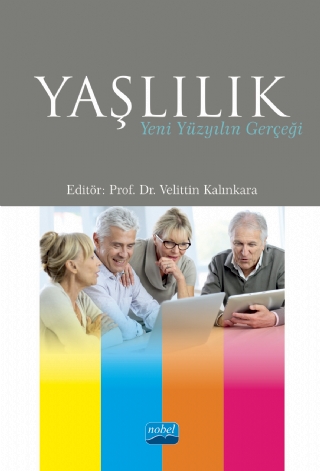
In the twenty-first century, demographic change is taking place that has never happened in world history, and no country is outside this scope. While increasing life expectancy and lowering birth rates are considered great achievements in modern science and health care, their significant impact on future generations is underrated. No matter how long we live, it becomes necessary for every country to rethink and restructure its social and economic institutions in order to ensure the well-being of individuals when working life ends. The aging of societies can affect economic growth and the sustainability of families, the ability of states and societies to provide resources for older people, and many other issues, including international relations. Despite scientific evidence, the importance and global implications of population aging are not yet fully understood. There is a need to raise awareness not only of global aging issues, but also of the importance of rigorous international scientific research and policy dialogue to help us respond to the challenges and opportunities of an aging world.
This book paints a picture of the impact of the aging population on the economy, society, family and environment. We hope this book, consisting of twenty chapters and contributed by 32 authors, will encourage you to identify the best ways to address dialogue, international studies, and the universal human experience about work, economics, family, communication, landscaping, and behavioral issues. We believe that scientists and every member of the society will be inspired by these suggestions and experiences in planning our own future, the aging and aging policies of the world societies and our country.
This book paints a picture of the impact of the aging population on the economy, society, family and environment. We hope this book, consisting of twenty chapters and contributed by 32 authors, will encourage you to identify the best ways to address dialogue, international studies, and the universal human experience about work, economics, family, communication, landscaping, and behavioral issues. We believe that scientists and every member of the society will be inspired by these suggestions and experiences in planning our own future, the aging and aging policies of the world societies and our country.
